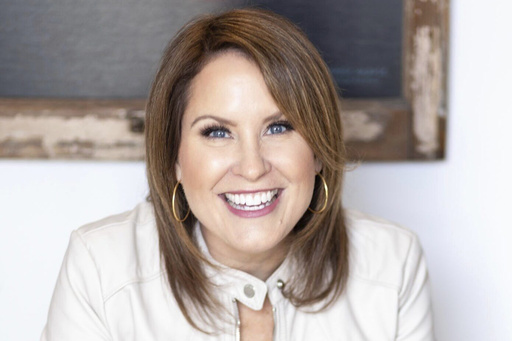
MADISON, Wis. — The upcoming primary for Wisconsin’s chief education official features a contest between the current Democratic incumbent, a supporter of school choice tied to Republican interests, and a rural school superintendent who has gained backing from teachers’ unions and school administrators.
The two candidates who secure the most votes in the primary on Tuesday will advance to a face-off on April 1.
In Wisconsin, the role of the state’s top education leader carries significant power, as the state uniquely elects this official while lacking a state board of education. This arrangement empowers the head of the Department of Public Instruction to direct educational policy, which includes funding distribution to schools and oversight of teacher certification.
The victor in this election will need to navigate the state’s interactions with the Trump administration, particularly as it pushes for the dissolution of the federal Department of Education, which contributes about 14% of the nation’s public school funding through an annual budget of $79 billion.
Even though the election for this role is categorized as nonpartisan, support tends to split along party lines. Democrats and advocates for increased public school funding align on one side, while Republicans and proponents of private school vouchers and educational choice programs fall on the opposite side.
The incumbent, Jill Underly, secured her first term in 2021 with endorsement from Democratic entities and educators’ unions; however, this election confronts her with challenges. She faces competition on the left from Jeff Wright, the Superintendent of Sauk Prairie, who has previously campaigned for a state assembly seat and has begun to encroach upon her support base.
On the right side of political alignment is Brittany Kinser, who has a background as a consultant in the education privatization movement and once led a Milwaukee nonprofit focused on charter schools. Kinser characterizes herself as a centrist as well as a “Blue Dog Democrat,” typically aligning with conservative viewpoints.
Kinser enjoys the backing of the Republican Party, which has contributed $100,000 to her campaign. Additionally, substantial donations have come from prominent Republican patrons, including Dick and Liz Uihlein, co-founders of Uline, and Diane Hendricks, owner of ABC Supply, each contributing the maximum allowable amount of $20,000. In contrast, Underly has been supported by the Wisconsin Democratic Party, which has provided $50,000 to her campaign.
In a setback for Underly, the political action committee from the Wisconsin Education Association Council, the state’s largest teachers’ union, has indicated a preference for Wright, although they stopped short of offering a formal endorsement. Wright also counts the Association of Wisconsin School Administrators among his endorsers, a group that did not support any candidates in the previous election cycle.
Key issues in the campaign revolve around student performance and educational funding. Kinser allowed her state administrator license to lapse last summer, a move that both Wright and Underly argue makes her unsuitable for the position. Kinser dismisses this criticism as a “distraction,” emphasizing her extensive experience in the field of education over the last 25 years.
Underly has positioned herself as an advocate for public education, proposing to utilize nearly all of Wisconsin’s $4 billion budget surplus to bolster school financing. However, Republicans who dominate the Legislature have indicated that this request is unlikely to be approved.
Last year, Underly revamped the state’s achievement standards, asserting that they better reflect current student knowledge. This initiative faced bipartisan criticism, including from Governor Tony Evers, who previously held the role of state superintendent before his gubernatorial election in 2018.
Both Wright and Kinser contend that the modified standards diminished academic expectations and convoluted the ability to track student performance trends. Kinser cites the enhancement of student outcomes as her motivation for entering the race and advocates for a Republican-sponsored measure aimed at reinstating the prior standards.
Wisconsin continues to grapple with one of the most significant achievement gaps in the nation, particularly between Black and white students.
Underly claims her experience equips her to handle upcoming changes proposed by the Trump administration. She publicly criticized the president’s decision to halt federal funding for Head Start programs, coinciding with her absence from a candidate forum alongside Kinser and Wright.
Wright’s strategy to attract Underly’s supporters included a television advertisement accusing her of failing educational institutions in Wisconsin. He argues that the state does not require the full $4 billion in funding that Underly has requested but does endorse an increase to prevent districts from needing to raise property taxes. Additionally, he criticized Underly’s management, claiming a breakdown in the department’s relationship with the Legislature.
The candidates have differing opinions on the future of the anti-union law known as Act 10, enacted in 2011, which largely abolished collective bargaining rights for school teachers and public employees, aside from police, firefighters, and sheriff deputies. Wright advocates for repealing Act 10 and believes it to be unconstitutional. Underly shares a similar view regarding the law, while Kinser opposes its repeal.
A legal challenge seeking to invalidate this law is currently before the Wisconsin Supreme Court. The race for state education superintendent is struggling to capture public attention amidst the highly publicized contest for the Wisconsin Supreme Court, which will also hold elections on April 1. The outcome of that race will influence the ideological composition of the court.

